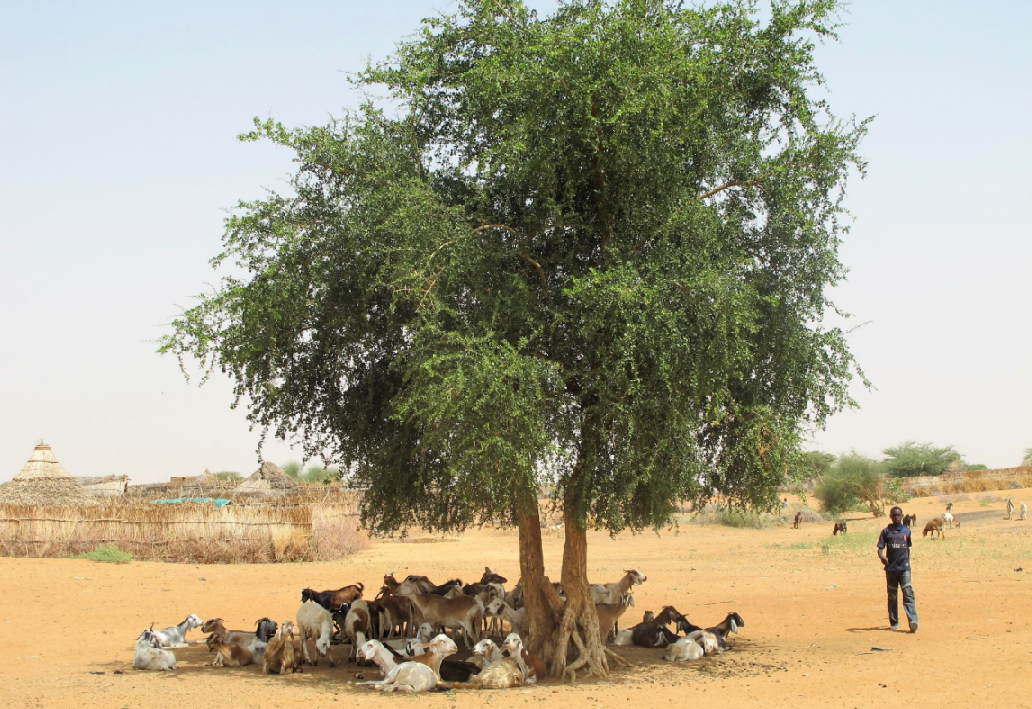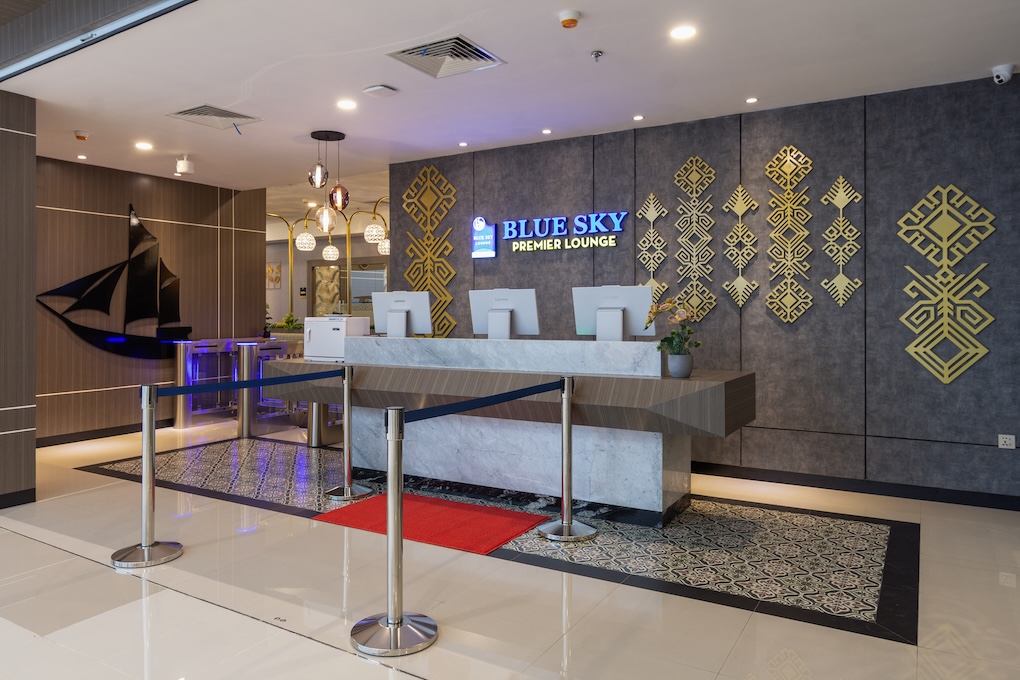Patricia Parker is not a name well-known in travel retail. But perhaps she should be. For the Surrey, UK-based founder of the Kids for Kids charity is on a mission to help disadvantaged families in Dafur in Sudan that deserves much wider recognition.
And she believes everyone in the travel industry cannot just support her cause but also have a huge impact on the lives of children in the region.

Patricia’s story and her remarkable Kids for Kids efforts were highlighted in a recent episode of TRI-POD, The Moodie Davitt Report’ video podcast series in association with The SEVA Group. The episode featured Patrick Doyle, the Dubai-based founder and Chief Executive of International Diplomatic Supplies (IDS).
Doyle, whose humanitarian efforts are well documented, describes himself as a man “at war with unfairness”. He is a staunch supporter of Kids for Kids and its founder who he describes as “a remarkable woman”.
Patricia Parker was named an Officer of the Order of the British Empire (OBE) earlier this year. That award from Queen Elizabeth II followed an MBE (Member of the Order of the British Empire) in the New Year’s Honours List 1998 for her contribution as a volunteer for Marie Curie Cancer Care and other charities. |
The Moodie Davitt Report caught up with Patricia as she prepares the latest Kids for Kids project, to learn how she became involved in charity work in Dafur and how travel retail can support her efforts.
She explains that Kids for Kids developed following a trip to Khartoum in 2001. Her eldest son Alastair was a diplomat to the UK Embassy there. Her plans were to spend time enjoying her favourite past-time, painting, but she also asked to see a project helping children.
“I had no intention whatsoever of starting a charity,” she recalls. “I was there to see my son and to paint, but very few people visit Sudan and I thought I could perhaps alert one or two people who might like to help in a very small way when I returned to the UK.”

Patricia and Alastair were invited to El Fasher, the regional capital of North Darfur, by Save the Children UK, and travelled to the area in a 4×4 vehicle.
“I have to admit, I was very, very ignorant when I went to Darfur for the first time. I was thrown into the deep end. It was the start of the Spring and I thought it would be lovely. It wasn’t.
“The drought had already set in; the extreme poverty was obvious. Outside El Fasher the roads were simply hardened sand, pockmarked, I quickly discovered, by the footprints of locals and donkeys, the only mode of transport.
“It was only March but already the heat was unbearable. I was shocked at the absolute absence of anything growing.
“As we were making away along one of the ‘roads’ we came across a young boy carrying a very big jerry can. I thought this nine-year-old child was lost but I was very wrong. He was actually walking for water; that was his job. Seven hours, he told us, to reach a water pump, a staggering 14-hour round trip.
“We were accompanied by the then Chief Water Engineer for the Save the Children Fund who explained that locals often walked two or three hours to access water but that boy’s long journey, hauling a 25 kilos jerry can on the return, even shocked him.
“This was deprivation beyond words; aid agencies were working in Darfur, yet nothing was being done to stop this. There is one of the largest aquafers in Africa under Darfur yet there were no plans for handpumps in even one village.
“My immediate thought was that my family could provide a handpump near the little boy’s home at Um Ga’al. I asked to meet his mother and we found her camped out under some trees near a wadi (dry riverbed) with her other four children. She too had gone to look for water but also for food for her treasured possession: three goats.
“In typical Sudanese hospitality, she offered us the only other thing she possessed: a bowl of goat’s milk. That was their meal and she gave it to us. I will never forget that.

“That marked the start for me. I went on to discover how families lived in the area, how the children were malnourished, and I knew many would not survive. That was when I made the commitment to help.
”I went back to Khartoum and, with the help of friends there, who still support us through our Khartoum Committee, created Kids for Kids. Our key project was and is our Goat Loan – milk for the children, and a livelihood for mothers as the little flock grows. After two years, offspring of the goats are passed on to another family, leaving the mother with a flock, and a livelihood.
“Inflation is out of control, basic essentials are in short supply, and climate change is not only causing higher temperatures than ever before, floods periodically destroy countless homes. Kids for Kids is needed more than ever.”
The Kids for Kids support network has since widened to include donkey loans, chickens for the elderly, providing necessities including mosquito nets, blankets, household and farm tools, along with water pumps, carts and water tanks. Kids for Kids offers midwife, first aid and para-veterinary training. Donations support the building of kindergartens and health units and, a long-term mission, to turn desert areas green through tree planting.

Kids for Kids has been planting drought-resistant trees for vital shade for children and animals and community forests in villages since 2007 following an experiment to reintroduce the Baobab tree. Patricia is quick to point out that “one of the first we planted is now called the Love Tree of Dafur as people carve their initials and hearts into it”.
“We have planted over 53,000 trees, in 14 different varieties, and made great progress but, of course, there is still lots to be done,” she adds.
“We have been transforming long term the lives of children and their families living in remote villages out of sight of the world for over 20 years.
”To date there are 110 Kids for Kids’ villages where children are no longer hungry, where water is close at hand, and where there is healthcare for both humans and animals. But there are many more children in need right now. 2021 saw some of the worst conditions ever in Sudan. Inflation is out of control, basic essentials are in short supply, and climate change is not only causing higher temperatures than ever before, floods periodically destroy countless homes. Kids for Kids is needed more than ever.
“We don’t believe in charity – we believe in helping people to help themselves. And I do believe businesses and individuals within the travel retail industry can make a difference, just as Patrick has.
“He is one of the most wonderful men I know. He’s a very successful businessman who has never forgotten his roots, his past. He is not blind to the problems in the world and if we could inspire other companies in the travel retail industry to do what he is doing, my goodness, what a change it would make.
“Everyone can make a difference. We value every penny we are given as very penny is put to good use in Dafur.”

Full details of the Kids for Kids Gift List are available here. Information on other ways to support the charity, which also hosts an annual ball in London, are included on this link.











